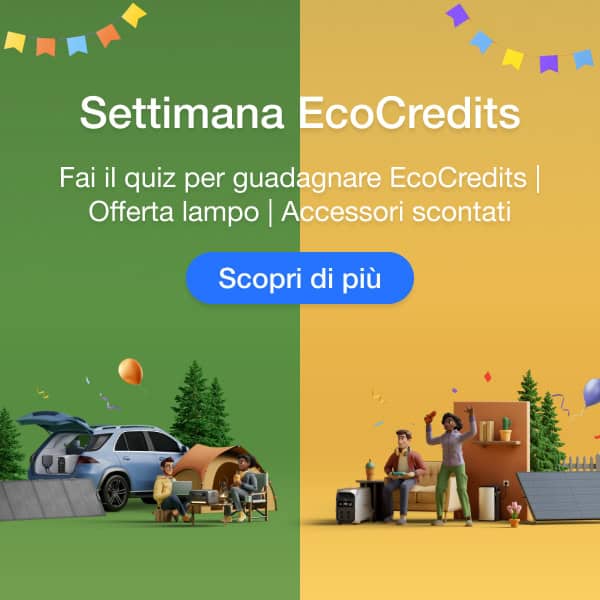Solar energy is a renewable energy source produced by harnessing the power of the sun’s rays. Photovoltaic panels and other solar technologies capture and convert sunlight into electricity.
The use of solar energy is getting increasingly popular every year as the price of PV technology drops. The reduced cost, increasing unreliability of the grid, and the shift towards clean, renewable energy are why more people are buying into solar.
But is solar energy a reliable choice?
We discuss the factors contributing to its reliability in this guide and whether it’s a safe investment for your home. Discover why solar energy can be a reliable and sustainable energy source.

How Reliable Are Solar Panels?
Photovoltaic panels are a vital component of any solar power system. The technology consists of photovoltaic cells that convert sunlight into electricity. This type of energy capture is incredibly reliable, and quality solar panels can last for decades with minimal maintenance.
Overall, PV panels are a highly reliable technology that provides clean, renewable energy for many years. As long as you properly care for your PV panels and have them installed by a qualified professional, you can expect them to last for decades without significant issues.

What Happens if My Solar Panels Fail?
As with any technology, solar panels can fail, and it’s essential to be aware of the factors contributing to their failure. One of the most significant risks to solar panels is physical damage, such as hail or falling debris. While most PV panels have a durable design that can withstand heavy strikes, they can still be damaged if the impact is severe enough.
Another risk to photovoltaic panels is environmental factors such as extreme heat or cold. PV panels operate in a wide range of temperatures, but if the temperature gets too hot or too cold, it can affect the panel’s efficiency. Environmental factors are why it’s crucial to install your PV panels in a location that gets plenty of sunlight but isn’t susceptible to damage from falling branches or other debris during extreme weather events like wind storms or hurricanes.
The good news is that solar panels come with warranties to protect against various failures. Most photovoltaic panels have a 5-10 year warranty covering the array and hardware. Ensure you don’t do anything that may void the warranty — for instance, washing the PV panels with a power washer or walking on them, etc.
Monitoring your system’s output for any drastic changes is vital to ensure your PV panels are working correctly. Most solar power systems come with monitoring technology built into the balance of the system, allowing you to track your system’s performance in real time. Consistently monitoring your solar power system can help you identify any issues before they become serious problems.

How Reliable Is the Rest of My Solar Setup?
In addition to photovoltaic panels, solar power systems contain components like inverters, solar batteries and a battery management system (BMS), and charge controllers. These components are crucial for converting the solar energy captured by solar panels into usable electricity and for the overall reliability of your solar power system.
Inverters are responsible for converting the Direct Current (DC) electricity your PV panels produce into Alternating Current (AC) electricity to power home appliances and small electronics. While inverters are generally reliable, they can sometimes fail due to age or other factors. Most inverters come with a warranty period of around ten years, but it’s essential to buy a trusted brand inverter.
Solar batteries are another vital component of off-grid solar power systems. Solar batteries store the energy created by the photovoltaic panels. Solar panels only capture energy during daylight hours. Solar batteries ensure the system can operate 24/7.
Solar batteries vary considerably in efficiency, lifespan, and reliability — primarily based on their chemistry.
Lead acid batteries are the oldest and cheapest option for solar batteries. Their low price may make them seem like an attractive option. But their relatively short lifespan — a few hundred cycles — makes them a short-term solution at best. Lead acid batteries also require considerable maintenance to operate effectively.
By comparison, lithium-ion (Li-ion) batteries can last for thousands of cycles. A cycle occurs each time a battery is discharged and recharged and is the most efficient measure of a battery’s lifespan. The more cycles a battery is capable of before losing efficiency, the longer it will last.
Lithium-ion batteries are more expensive than lead acid batteries, but the cost is consistently dropping, and the tech is improving. Li-ion batteries are maintenance-free, operate in a wide range of temperatures, and can last for years.
LiFePO4 is a relatively new subset of Li-ion battery type that offers even greater efficiency and durability than traditional lithium-ion batteries. Unlike Li-ion batteries, lithium iron phosphate (LFP/LiFePO4) batteries don’t use metals like cobalt or nickel, making them more environmentally friendly and ethically sourced.
LiFePO4 batteries also support deep discharging and last for many more cycles. That’s part of why EV companies like Tesla and the best off-grid power manufacturers are increasingly adopting this newer technology.
LiFePO4 is the most reliable and efficient battery technology available to consumers.
Solar energy installations require additional balance of system components, but many manufacturers offer all-in-one solutions for those who don’t want to DIY.

Is Solar Power a Reliable Source of Energy for My Home?
Solar power is a reliable source of energy for homes. Here are a few reasons why:
Renewable Energy Source
Unlike fossil fuels, solar energy is a renewable energy source that will never run out. The energy produced by the sun far exceeds the electricity needs of the whole world.
Homeowners can rely on this renewable energy source to meet their electricity needs as long as the sun shines — and the solar power system is sufficient to meet household power consumption requirements.
Durability
Photovoltaic panels can withstand extreme weather conditions, including hail, high winds, and heavy snow. They are also resistant to corrosion and degradation, typically lasting 25 years or more.
Versatility
Solar panels can be installed on rooftops or the ground, making them a versatile energy source for homeowners. They can also power various applications, including off-grid power, home power backup, and residential solar power. The versatility makes them reliable for homes of any type.

Is Solar Energy a Safe Investment?
Investing in solar energy is a safe and smart financial decision for homeowners. Solar panels can significantly reduce or even eliminate a homeowner’s electricity bill, which means they can save thousands of dollars over the life of their solar system. Additionally, government incentives and energy credits can further reduce the cost of installing PV panels.

Frequently Asked Question
The failure rate of solar panels is exceptionally low. A study by the National Renewable Energy Laboratory (NREL) reported a median failure rate of 0.05% annually between 2000-2015, based on 50,000 US installations and 4,500 global. Failure is defined as a Photovoltaic (PV) Panel needing to be replaced.
Final Thoughts
Solar energy is a reliable and savvy long-term investment for homeowners. Photovoltaic panels and other components are durable and long-lasting with proper maintenance and monitoring. They can significantly reduce or even eliminate a homeowner’s electricity bill.
If you’re considering switching to solar energy, choose high-quality equipment from reputable manufacturers like EcoFlow and have it installed by a professional. At EcoFlow, we supply homeowners in 100 countries and regions worldwide, with over 2 million users.
We’re leading the way forward with industry-leading off-grid electricity solutions, green technology, and whole home generators powered by solar panels.







